Released: 4th November 2002
Writers: Sophie Ellis-Bextor / Matt Rowe / Gregg Alexander
Peak position: #14
Chart run: 14-26-41-60-65-66-55-55-64-70
We all love music. But Sophie Ellis-Bextor really loves it. So much so, that Music Gets The Best Of Me was an ode dedicated to it, and woe betides any man that tried to get in-between them.
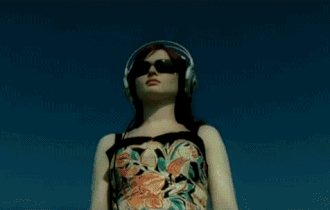
Sophie Ellis-Bextor’s debut album campaign was an unorthodox one, considering two of the four singles – including this one – lifted from it didn’t appear on the original version. Read My Lips had found itself caught up in something of an identity crisis; the early singles suggested it would be a shimmery disco-pop affair, but in actuality, it dipped more into synth-heavy ‘80s electronica. To add insult to injury, Groovejet (If This Ain’t Love) was nowhere to be found. Thus, a re-released version soon arrived, adding some radio-friendly pop tracks and a live recording of her Spiller collaboration (well, it was better than nothing) in an attempt to reach an agreeable middle ground between the album as Sophie Ellis-Bextor had created it and what people expected of it from the way it had been promoted.

In that respect, Music Gets The Best Of Me was an obvious fourth single, if not the only real option. The track received a radio edit before its release, although this is one of those cases where it feels like it was done for the sake of it because the song loses more than it gains. The: “Come on, come on, come on…” backing vocals were originally much more prominent during the final choruses, but significantly pared back for the single. They weren’t removed entirely, though, which raises the question of why some were deemed unnecessary while others weren’t. It’s not a deal-breaker by any means, but if pushed, we’d probably pick the mix featured on Read My Lips with its slightly fuller sound.
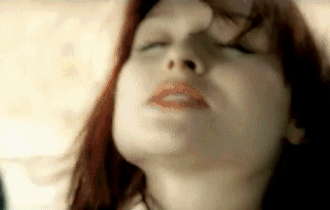
The premise of Music Gets The Best Of Me is a bit out there, as Sophie Ellis-Bextor pledges her allegiance to music before men. But there’s probably a truth to the lyrics that many people can identify with: “I’ve got to tell you something, you’re not my first ever love, men come and go I’ve noticed, but my first love’s going strong”. There is a resonance about that deep association many people have with music and an early sense of feeling different emotions at the hands of something outside of our own self. Indeed, it stretches back far further than any romantic relationship and is almost so ingrained in our lives, that it feels weird to hear someone trying to put it into words. Music Gets The Best Of Me is – in some small part – a reflection of us all: “Without the beat I’m nothing, without a song in my heart, I’d be a different girlfriend…”. It may sound fanciful, but music does help define who we are, how we behave and how we interact with the world around us.

All that being said, while some assertions within the song are profound, others are equally absurd. Certainly: “If someone held you with a gun, you know I’d make you number one” is about as unique a romantic declarations as there ever was. And that’s where Music Gets The Best Of Me becomes a little tonally inconsistent because it tries to create a love triangle out of the situation. Now, we love a daft pop lyric as much as the next person, but Sophie Ellis-Bextor wasn’t a daft pop star. There had to be some precedent set for such wackiness (Girls Aloud, for example, could definitely have pulled this off), so this was an unexpected shift.
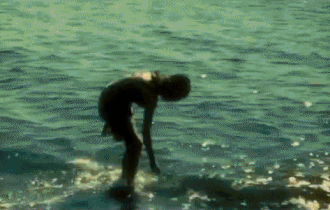
Mainly because at its heart, Music Gets The Best Of Me is expertly moulded for commercial radio. The production is full of little crescendos where the melody gently builds and breaks with toe-tapping regularity. If you fully embrace the quirkiness of this track, then it’s a joyous, warm breeze of a pop song. But it’s also easy to see how it may have left many people scratching their heads and struggling to contextualise it.
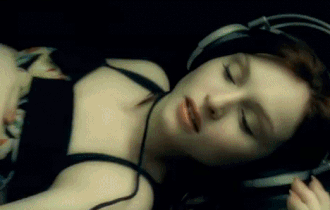
Music Gets The Best Of Me received not one, but two music videos: a ‘day’ and a ‘night’ version. The former was used in the UK and adopted an approach that feels aesthetically reminiscent of Groovejet (If This Ain’t Love) in the way that it’s predominantly following Sophie Ellis-Bextor around. However, here she interacts with the camera a little more, making it more like a home movie. There’s some gorgeous scenery that sits perfectly with the summery feel of the track, but even as the video shifts to the nighttime fairground scenes (thus rendering the ‘day’ label completely redundant), it maintains a warm, whimsical atmosphere. Clearly, that’s the intention because, even though it looks a bit cheap and cheerful, the visual quality is high. It’s easy to take for granted the sheer amount of work that must have gone into splicing everything together and obtaining the shots, because rarely – if ever – do we see Sophie Ellis-Bextor in the same place twice.
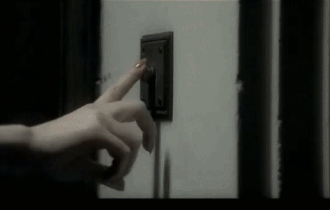
The second (night) version is entirely different and, in some respects, feels like such a waste because it has a much stronger concept and is more consistent with the tone of Murder On The Dancefloor. In it, Sophie Ellis-Bextor arrives at a dinner party and then – having caused a polite amount of disruption – proceeds to run, jump and crash her way through the scenery into various scenarios. She passes through an operating theatre, crawls through a limousine and climbs out of a bathtub, among other things. The video ends back where it started, and Sophie Ellis-Bextor politely excuses herself from the party, much to the bemusement of the host. It’s all slightly quirky with awkward, dry humour about the acting that feels quintessentially British and therefore perfect to have accompanied the release of the single in the UK. Both videos add value, albeit in different ways; the ‘day version’ feels more suited to the song, while the ‘night’ version feels more aligned to the personality of the album campaign. With such effort having been invested in the way that Read My Lips was marketed via the singles, it’s surprising that the latter video was left on the shelf.
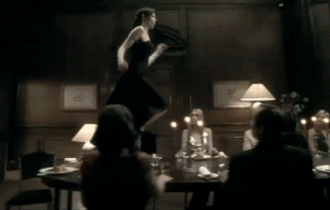
Music Gets The Best Of Me peaked at #14 in the UK, becoming Sophie Ellis-Bextor’s first single to miss the top ten. However, as the final release from a double platinum album, it was always going to be fighting the law of diminishing returns. Moreover, although a blast of hazy, summery pop is always welcome in the charts, it did feel mistimed arriving so late in the year. Yet, Music Gets The Best Of Me still achieved everything that it needed to, giving Read My Lips one final resurgence as it rebounded back up to #19.
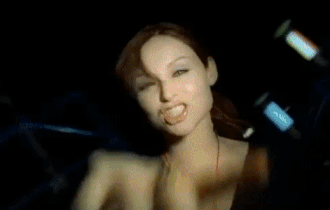
Sophie Ellis-Bextor’s sound and image was not one of your typical pop star, and in many ways, Music Gets The Best Of Me – and the context surrounding its existence – characterised the tussle between expectation and reality that followed the early part of her career. This is a tremendous song, and although it doesn’t necessarily belong at the top of the charts, that makes it no less warm, uplifting and joyous.



